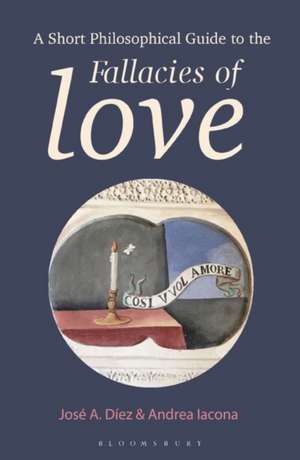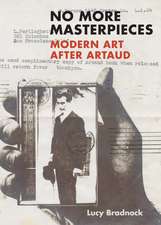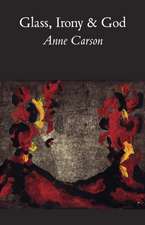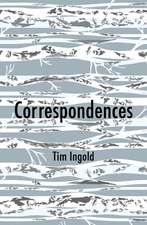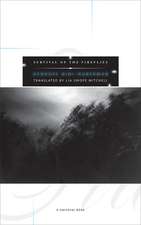A Short Philosophical Guide to the Fallacies of Love
Autor José A. Díez, Andrea Iaconaen Limba Engleză Paperback – 9 dec 2020
| Toate formatele și edițiile | Preț | Express |
|---|---|---|
| Paperback (1) | 112.18 lei 3-5 săpt. | |
| Bloomsbury Publishing – 9 dec 2020 | 112.18 lei 3-5 săpt. | |
| Hardback (1) | 342.46 lei 6-8 săpt. | |
| Bloomsbury Publishing – 9 dec 2020 | 342.46 lei 6-8 săpt. |
Preț: 112.18 lei
Preț vechi: 122.31 lei
-8% Nou
Puncte Express: 168
Preț estimativ în valută:
21.47€ • 22.33$ • 17.72£
21.47€ • 22.33$ • 17.72£
Carte disponibilă
Livrare economică 24 martie-07 aprilie
Preluare comenzi: 021 569.72.76
Specificații
ISBN-13: 9781350140899
ISBN-10: 1350140899
Pagini: 152
Dimensiuni: 129 x 198 x 17 mm
Greutate: 0.2 kg
Editura: Bloomsbury Publishing
Colecția Bloomsbury Academic
Locul publicării:London, United Kingdom
ISBN-10: 1350140899
Pagini: 152
Dimensiuni: 129 x 198 x 17 mm
Greutate: 0.2 kg
Editura: Bloomsbury Publishing
Colecția Bloomsbury Academic
Locul publicării:London, United Kingdom
Caracteristici
Draws on literature, music, poetry and anecdotes including Aesop's Fables, Talking Heads, Cinderella and Don Giovanni to illustrate love as source of misunderstandings and misconceptions
Notă biografică
José A. Díez is Professor in the Department of Logic, History and Philosophy of Science at the University of Barcelona, Spain.Andrea Iacona is Professor of Logic in the Department of Philosophy and Education at the University of Turin, Italy.
Cuprins
Chapter 1: Basic Ideas about Love What we talk about when we talk about loveSome fundamental properties of loveTruth, justification, and knowledgeThe fallacies of loveSex, gender, and stereotypesSome final remarks Chapter 2: The Invention of ReasonsRationalizationThe you-you fallacyThe virtue fallacyPurported sour grapesLost love's laboursInference to the worst explanation Chapter 3: The Power of Desire over BeliefThe glasses of loveBelief without evidenceEvidence without beliefLove is blindThe diamond fallacy Chapter 4: Wanting it allComplex cases of cognitive mistakesThe divided loverThe princessThe Don JuanThe emotional terrorizer Chapter 5: When Love Goes AwayThe end of loveThe sunk costs fallacyThe sweet lemons fallacyInertia and uncertaintyDesamorIndex
Recenzii
[A Short Philosophical Guide to Fallacies of Love] would be useful for anyone who wants to explore the intersection of informal logic, epistemology and love.
Love is one of the strongest emotions we experience, and it is a key driver of our actions. Love makes us write poetry, compose sonatas, and climb mountains, and can drive us to despair, up to the point where we kill in jealous rage. If you have ever wondered how we come to know about love - our own and others' - and whether the feelings that drive our actions are justified, then this is the book for you. Díez and Iacona offer an authoritative discussion of the epistemology of love and provide a compelling analysis of its fallacies. It's a must-read both for novices and veterans in matters of love.
Love is the object of libraries of books, many of which bemoan or celebrate its illusions, follies and deceptions en bloc. Diez and Iacona, on the other hand, itemize, for the first time, the main forms of the illusions to which love is heir. Each is clearly described, anatomized and illustrated. Few readers will fail to experience the shock or click of recognition on reading one or more of these portraits. They neither preach nor praise. They simply describe, one after another, the different illusions of lovers and the beloved. They write lucidly. The philosophical distinctions they employ are introduced with a light touch and deftly deployed. Their book is for everyone interested in understanding one of the most important parts of life - but perhaps not for lovers.
It is said that people don't pay much attention to philosophy because philosophy doesn't pay much attention to people. Fallacies of Love is a rare example of philosophers giving what we care about its due, setting analytic acumen to work on real-life ways we all fall into traps in affairs of the heart.
Acute and stylishly written, this book is one of the best I have ever read on love. Diez and Iacona's elucidation of love's epistemology is interesting and illuminating. Their book opens up fresh perspectives and it is sure to become a reference point in future debates of this topic
Díez and Iacona's book is a fun-to-read inquiry into one of the most common sources of misjudgments: love. Although poets and thinkers have considered the fallacies of love, the idea of the authors of fathoming love's misguiding nature through the means of analytic epistemology is new, entertaining and instructing.
A provocative, enlightening and entertaining book. Through vivid and amusing examples, Díez and Icona use the tools of logic and epistemology to deconstruct the myth of romantic love, which has always been a tool of social control and a powerful anaesthetic.
Love is one of the strongest emotions we experience, and it is a key driver of our actions. Love makes us write poetry, compose sonatas, and climb mountains, and can drive us to despair, up to the point where we kill in jealous rage. If you have ever wondered how we come to know about love - our own and others' - and whether the feelings that drive our actions are justified, then this is the book for you. Díez and Iacona offer an authoritative discussion of the epistemology of love and provide a compelling analysis of its fallacies. It's a must-read both for novices and veterans in matters of love.
Love is the object of libraries of books, many of which bemoan or celebrate its illusions, follies and deceptions en bloc. Diez and Iacona, on the other hand, itemize, for the first time, the main forms of the illusions to which love is heir. Each is clearly described, anatomized and illustrated. Few readers will fail to experience the shock or click of recognition on reading one or more of these portraits. They neither preach nor praise. They simply describe, one after another, the different illusions of lovers and the beloved. They write lucidly. The philosophical distinctions they employ are introduced with a light touch and deftly deployed. Their book is for everyone interested in understanding one of the most important parts of life - but perhaps not for lovers.
It is said that people don't pay much attention to philosophy because philosophy doesn't pay much attention to people. Fallacies of Love is a rare example of philosophers giving what we care about its due, setting analytic acumen to work on real-life ways we all fall into traps in affairs of the heart.
Acute and stylishly written, this book is one of the best I have ever read on love. Diez and Iacona's elucidation of love's epistemology is interesting and illuminating. Their book opens up fresh perspectives and it is sure to become a reference point in future debates of this topic
Díez and Iacona's book is a fun-to-read inquiry into one of the most common sources of misjudgments: love. Although poets and thinkers have considered the fallacies of love, the idea of the authors of fathoming love's misguiding nature through the means of analytic epistemology is new, entertaining and instructing.
A provocative, enlightening and entertaining book. Through vivid and amusing examples, Díez and Icona use the tools of logic and epistemology to deconstruct the myth of romantic love, which has always been a tool of social control and a powerful anaesthetic.
